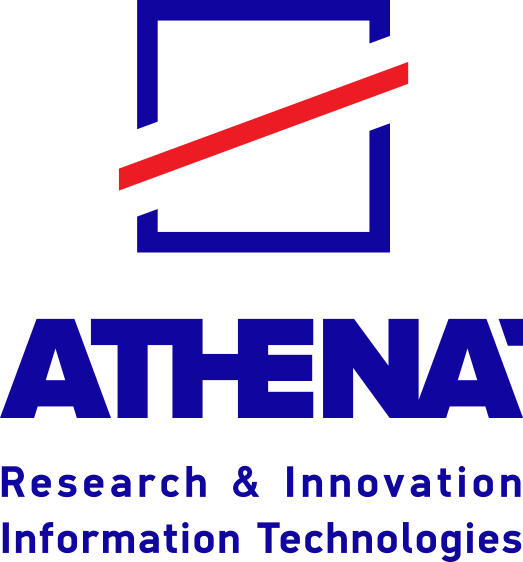Archimedes NLP Theme Meeting: PhD Thesis Presentation, Monday 27 January, 17:30-19:00 (Greek time)
Speaker: Efstathia Soufleri
Title: "Privacy preserving and efficient Machine Learning algorithms" (https://hammer.purdue.edu/articles/thesis/PRIVACY_PRESERVING_AND_EFFICIENT_MACHINE_LEARNING_ALGORITHMS/26342761?file=47823691)
Room: Pythagoras, Archimedes Unit (1 Artemidos str., ART1 building, ground floor)
and virtually via Zoom Meetings -
https://zoom.us/j/92128255784?pwd=UKGdE2a7qqgS7oJkTuJKVbZz3AWUt0.1
• Meeting ID: 921 2825 5784
• Passcode: gCk8CZ
Check for additional ways to participate/dial in at the bottom of the announcement.
Abstract:
Extensive data availability has catalyzed the expansion of deep learning. Such advancements include image classification, speech, and natural language processing. However, this data-driven progress is often hindered
by privacy restrictions preventing the public release of specific datasets. For example, some vision datasets cannot be shared due to privacy regulations, particularly those containing images depicting visually sensitive or disturbing content. At the same
time, it is imperative to deploy deep learning efficiently, specifically Deep Neural Networks (DNNs), which are the core of deep learning. In this dissertation, we focus on achieving efficiency by reducing the computational cost of DNNs in multiple ways.
This talk first tackles the privacy concerns arising from deep learning. It introduces a novel methodology that synthesizes and releases synthetic data, instead of private data. Specifically, we propose Differentially
Private Image Synthesis (DP-ImgSyn) for generating and releasing synthetic images used for image classification tasks. These synthetic images satisfy the following three properties: (1) they have DP guarantees, (2) they preserve the utility of private images,
ensuring that models trained using synthetic images result in comparable accuracy to those trained on private data, and (3) they are visually dissimilar from private images. The DP-ImgSyn framework consists of the following steps: firstly, a teacher model
is trained on private images using a DP training algorithm. Subsequently, public images are used for initializing synthetic images, which are optimized in order to be aligned with the private dataset. This optimization leverages the teacher network's batch
normalization layer statistics (mean, standard deviation) to inject information from the private dataset into the synthetic images. Third, the synthetic images and their soft labels obtained from the teacher model are released and can be employed for neural
network training in image classification tasks.
Additionally, we aim to enhance efficiency in machine learning by introducing a computationally efficient method for action recognition on compressed videos. Rather than decompressing videos for action recognition tasks,
our approach performs action recognition directly on the compressed videos. This is achieved by leveraging the modalities within the compressed video format, specifically motion vectors, residuals, and intra-frames. To process each modality, we deploy three
neural networks. Our observations indicate a hierarchy in convergence behavior: the network processing intra-frames tend to converge to a flatter minimum than the network processing residuals, which, in turn, converge to a flatter minimum than the motion vector
network. This hierarchy motivates our strategy for knowledge transfer among modalities to achieve flatter minima, generally associated with better generalization. Based on this insight, we propose Progressive Knowledge Distillation (PKD), a technique that
incrementally transfers knowledge across modalities. This method involves attaching early exits, known as Internal Classifiers (ICs), to the three networks. PKD begins by distilling knowledge from the motion vector network, then the residual network, and finally
the intra-frame network, sequentially improving the accuracy of the ICs. Moreover, we introduce Weighted Inference with Scaled Ensemble (WISE), which combines outputs from the ICs using learned weights, thereby boosting accuracy during inference. The combination
of PKD and WISE demonstrates significant improvements in efficiency and accuracy for action recognition on compressed videos.
In summary, this talk contributes to advancing privacy preserving and efficient machine learning algorithms. The proposed methodologies offer practical solutions for deploying machine learning systems in real-world
scenarios by addressing data privacy and computational efficiency. Through innovative approaches to image synthesis, neural network compression, and action recognition, this work aims to foster the development of robust and scalable machine learning frameworks
for diverse computer vision applications.
For ways to receive news about the NLP Group and its meetings, as well as to get check the latest information about the meetings of Archimedes NLP Theme and AUEB NLP Group, check
http://nlp.cs.aueb.gr/news.html. To subscribe to the mailing list of AUEB NLP Group, send a message with subject "subscribe nodigest" to
This email address is being protected from spambots. You need JavaScript enabled to view it.. If you have an AUEB account and want to receive announcements about AUEB NLP Group Meetings through MS Teams, subscribe to "AUEB NLP Group meetings" group on MS Teams (code:
01j65ny). Team members can also send text messages (chat) to other team members.
If you are an AI researcher or practitioner, please consider becoming a member of the Hellenic Artificial Intelligence Society (EETN,
http://www.eetn.gr/en/).
Short Bio:
Efstathia Soufleri is a postdoctoral fellow with the Archimedes Unit at the Athena Research Center, working under Prof. Sophia Ananiadou. She earned her Ph.D. in Electrical and Computer Engineering from Purdue University,
USA, specializing in Efficient and Privacy-Preserving Machine Learning Algorithms under the guidance of Prof. Kaushik Roy. Her research contributions span across the Center for the Co-Design of Cognitive Systems (COCOSYS) and the Center for Brain-inspired
Computing (C-BRIC), where she focused on privacy-preserving machine learning and efficient machine learning algorithms.
Efstathia's work has been published in prominent venues such as ICML, NeurIPS, TMLR, and DATE, with several co-authored papers in the fields of efficient machine learning and privacy. She also holds a Master of Science
in Computer Science from the University of Thessaly, where she developed efficient algorithms for video compression. Her academic journey began with a Bachelor's degree in Applied Mathematics from the National and Kapodistrian University of Athens, which she
completed in just 3.5 years, graduating with honors.
In recognition of her outstanding academic performance, Efstathia has received numerous awards, including the Gerondelis Foundation Award for Academic Excellence, the Academic Excellence Scholarship from the Greek State
Scholarships Foundation, and the distinction of being named Valedictorian at the University of Thessaly.
Dial-in information:
One tap mobile
+302111984488,,92128255784#,,,,*337013# Greece
+302311180599,,92128255784#,,,,*337013# Greece
Dial by your location
• +30 211 198 4488 Greece
• +30 231 118 0599 Greece
Meeting ID: 921 2825 5784
Passcode: 337013
Find your local number:
https://zoom.us/u/asM4y5t27













